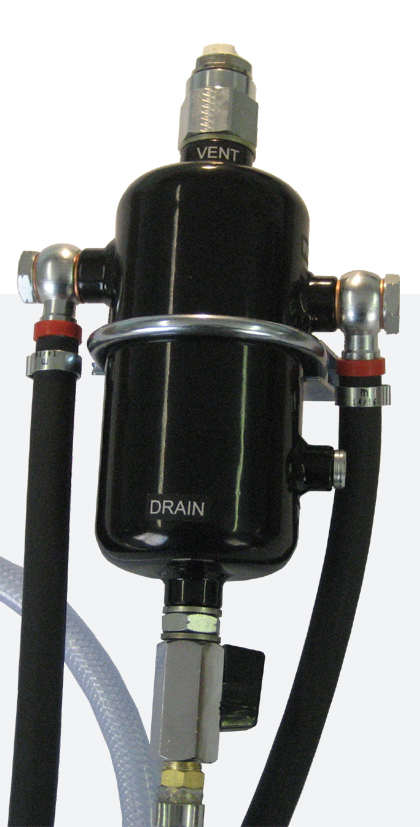About
MLS Fuel Purifiers

Client Testimonials
-
1
"Grayline Coaches have found that fitting the MLS purifier has not only given us peace of mind on the quality of diesel our engines use, we have recorded lower exhaust emissions improving our green statistic for the environment." Alan Gray - Director, Grayline Coaches, Bicester.
-
2
"Rocket Rentals have fitted the MLS fuel purifier for nearly three years with excellent results, in the past month alone the purifier has saved us two engines from serious failure and consequent cost, Nov 2011." Simon Tomblin, Managing Director, Rocket Rentals, Gloucester.
-
3
"Customer savings in relation to fuel are very significant. When a fuel related breakdown occurs, the fuel tank has to be drained and the fuel disposed of. On bigger machines this can be fuel up to the value of £250 wasted. By fitting the MLS FP we have reduced fuel wastage and have seen several other benefits" Ray Luxton - Business Development Manager, Holt JCB.
Why choose MLS?
80% reduction in field contamination related callouts to machines fitted with the MLS Fuel Purifier.
Warranty claims in relation to fuel pumps and injectors have been eliminated.
Significant environmental and disposal cost benefit that waste fuel does not have to be disposed of.
MLS Fuel Purifiers
YOUR DIESEL ENGINE IS AT RISK
Bio-Diesel and Water
Fuel legislation designed to reduce harmful emissions and increasing global demand for diesel has resulted in more and more bio-diesel
finding its way into the fuel supply chain.
The increased use of bio-diesel increases the incidence of water contamination problems in
diesel.
Why? Bio-diesel contains more water than petro-diesel (it is introduced in the production process), it is also hygroscopic which means it
absorbs water from the atmosphere.
Petro-diesel can absorb around 50 parts per million (ppm) of water whilst bio-diesel can absorb as much as 1500ppm most global fuel
standards recommend a maximum water content of 200ppm.
As ambient temperatures rise water is absorbed into the fuel, as they fall the water condenses out of the fuel and forms free water. Free
water can wreak havoc in your fuel system, this water subsequently accumulates and sinks to the bottom of the tank creating an ideal
environment for the growth of "fuel bugs".
There are known to be over 20 species of fuel bugs that can contaminate your fuel storage tank, including the most common Cladisporium
resinae. Fungal infestation can 'spoil' the fuel when the sludge and residue is drawn into the engine, which quickly clogs conventional
cartridge filters, causing loss of power, narrowing fuel lines and eventually leading to engine breakdown.
MAIN DEALERSHIP UK
 Fuel Purifiers Spain
Fuel Purifiers Spain